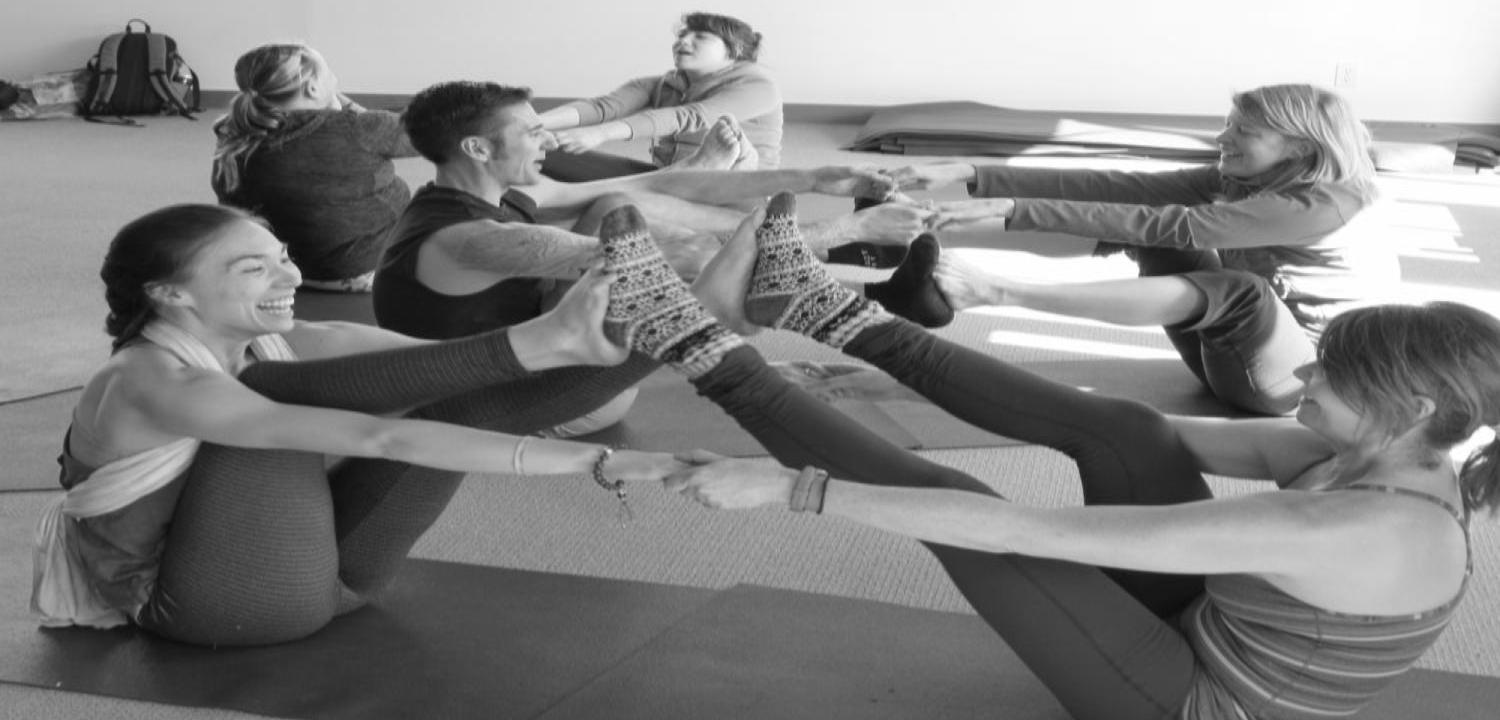Become A Yoga Teacher Starting At Only $2295.
2025 Yoga Teacher Training Trends
As the yoga industry evolves, so does the approach to teacher training. In 2025, new trends are shaping the curriculum, technology, and community aspects of yoga education. Understanding these trends can help aspiring yoga teachers choose a program that fits their goals. Here’s what you need to know about yoga teacher training in 2025.
Immersive Online Yoga Teacher Training Programs
In 2025, online yoga teacher training continues to thrive with immersive experiences. With advanced technology, online training now includes interactive live sessions, recorded lectures, and AI-driven feedback. The shift to virtual learning means future instructors can practice at their own pace without missing a beat. Immersive online programs also offer flexible scheduling, allowing students to balance studies with other commitments.
Many programs now provide virtual workshops and retreats, simulating the in-person experience as closely as possible. These workshops give students a chance to interact with mentors and classmates, creating a community bond. Students gain valuable experience through live teaching labs, where they practice teaching under guidance. Additionally, online programs now often incorporate meditation, breathwork, and asana practice for complete holistic learning.
AI integration plays a significant role in 2025’s online yoga training. From personalized feedback on postures to tracking progress, AI enhances student learning experiences. These platforms offer real-time adjustments, allowing students to refine their techniques as they practice. Virtual reality and augmented reality are also becoming popular, providing realistic studio environments from home. This trend not only improves accessibility but also caters to various learning styles.
Emphasis on Inclusive and Accessible Yoga Practices
A notable trend in 2025 is the emphasis on inclusivity and accessibility in yoga training programs. More schools are designing curricula that address diverse needs, from physical limitations to cultural backgrounds. This approach fosters a welcoming environment for students of all abilities and backgrounds. Training programs are incorporating accessible teaching methods to ensure everyone can enjoy yoga safely and comfortably.
Yoga schools now include modules on adaptive yoga practices, which are beneficial for teaching students with disabilities or mobility challenges. Students learn how to use props like chairs, blocks, and straps to make yoga poses more accessible. Future teachers also explore variations for each posture to accommodate different body types and conditions. By understanding these adaptations, teachers can create classes that are truly inclusive.
In addition, inclusivity extends to cultural awareness. Programs now focus on respecting yoga’s roots and avoiding cultural appropriation. Trainees learn the significance of honoring yoga’s origins while teaching in a diverse society. This focus on inclusivity and respect aligns with the industry’s shift toward ethical and mindful teaching. Understanding these principles prepares students to teach with sensitivity and awareness.
Specialized Certifications in Niche Yoga Practices
In 2025, specialized certifications are increasingly popular, allowing future yoga teachers to stand out. Many training programs now offer niche certifications in fields like prenatal yoga, trauma-informed yoga, and yoga therapy. These focused courses allow teachers to deepen their skills in specific areas and attract dedicated student bases. Specialized certifications appeal to those interested in supporting unique communities, from new mothers to individuals healing from trauma.
Prenatal and postnatal yoga, for example, is a growing field with significant demand. Teachers trained in these areas help expecting and new mothers navigate their changing bodies. Trauma-informed yoga is another specialization that requires an understanding of how to create a safe space for individuals recovering from trauma. Teachers learn techniques to make their classes a supportive environment for mental and emotional healing.
Yoga therapy certification is also gaining traction as yoga’s therapeutic benefits are recognized. Certified yoga therapists work alongside healthcare professionals to support physical and mental health through tailored practices. These specializations not only enrich the teacher’s skills but also make them more marketable in a competitive industry. Many students choose programs that offer these niche certifications to expand their teaching opportunities.
Incorporating Mindfulness and Mental Health Education
In 2025, there’s a greater focus on mindfulness and mental health in yoga teacher training programs. Yoga has long been a tool for physical health, but its mental benefits are now gaining emphasis. More training programs are incorporating modules on mental health awareness, stress management, and emotional resilience. This education equips future teachers to guide students through practices that enhance mental well-being.
Mindfulness training teaches future instructors how to lead meditation and breathwork sessions effectively. These practices help students cultivate present-moment awareness, reducing stress and anxiety. In addition, programs cover the psychology of yoga and how it impacts the brain. Teachers learn to understand the connection between asana practice and mental health, which can enhance the emotional benefits of yoga for students.
Furthermore, programs are addressing burnout prevention for teachers. By focusing on self-care and mental health practices, yoga teacher training helps future instructors avoid burnout in their careers. This emphasis on mindfulness and mental health aligns with the broader wellness industry’s focus on holistic well-being. As a result, graduates are better equipped to support their students and themselves.
Sustainability and Yoga for Social Change
Sustainability and social responsibility are essential aspects of yoga teacher training in 2025. Many programs emphasize eco-friendly practices, from studio operations to personal habits. Sustainable yoga training programs often include teachings on how to create an environmentally conscious studio. This trend reflects the broader movement towards environmental responsibility within the wellness industry.
Yoga schools now cover the environmental impact of yoga products, from mats to clothing. Trainees learn to make eco-friendly choices, supporting brands that use sustainable materials. Some programs even focus on how to design a “zero-waste” yoga studio, incorporating sustainable practices into daily operations. This knowledge prepares teachers to create eco-conscious spaces and inspire students to adopt green habits.
Moreover, social change is a core value in many yoga programs. Teachers are encouraged to use their practice to support social justice initiatives. Programs cover topics like community outreach, inclusivity, and activism, showing teachers how yoga can be a tool for positive change. This approach aligns with yoga’s philosophy of compassion and service. By understanding these concepts, teachers are empowered to make a difference through their practice.
Conclusion: Embrace the Future of Yoga Teacher Training
The trends in yoga teacher training for 2025 reflect a dynamic and inclusive future. With online learning, inclusivity, specialized certifications, mental health focus, and sustainability, aspiring yoga teachers have many opportunities to expand their skills. Embracing these trends ensures that teachers are well-prepared to meet the needs of diverse communities. Whether you’re a future yoga teacher or an experienced yogi, staying informed about these trends will help you make the most of your training journey.





